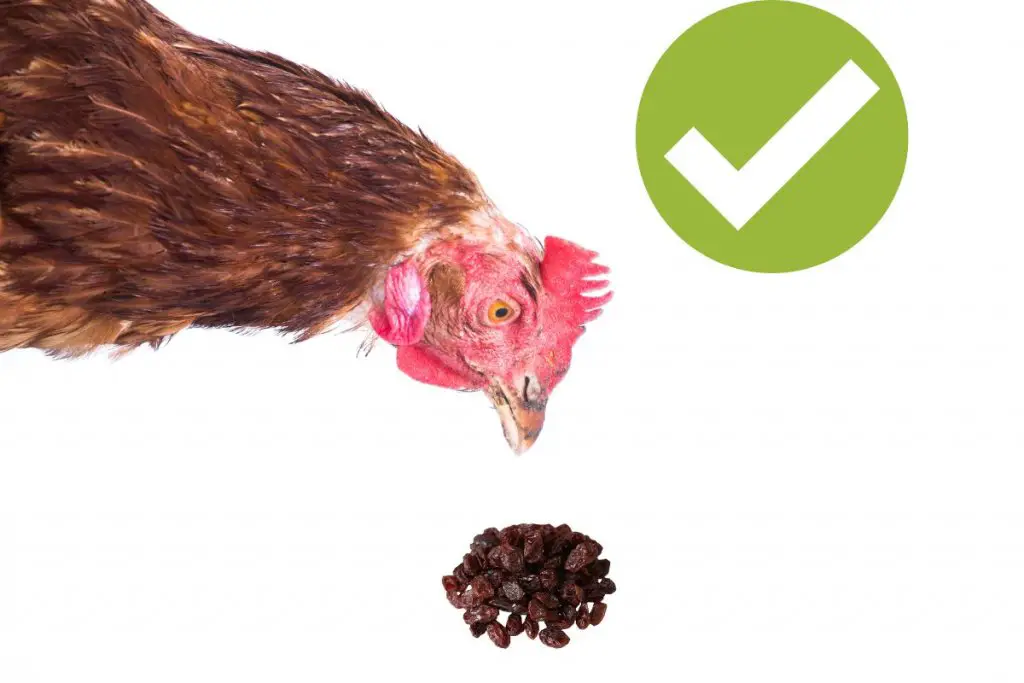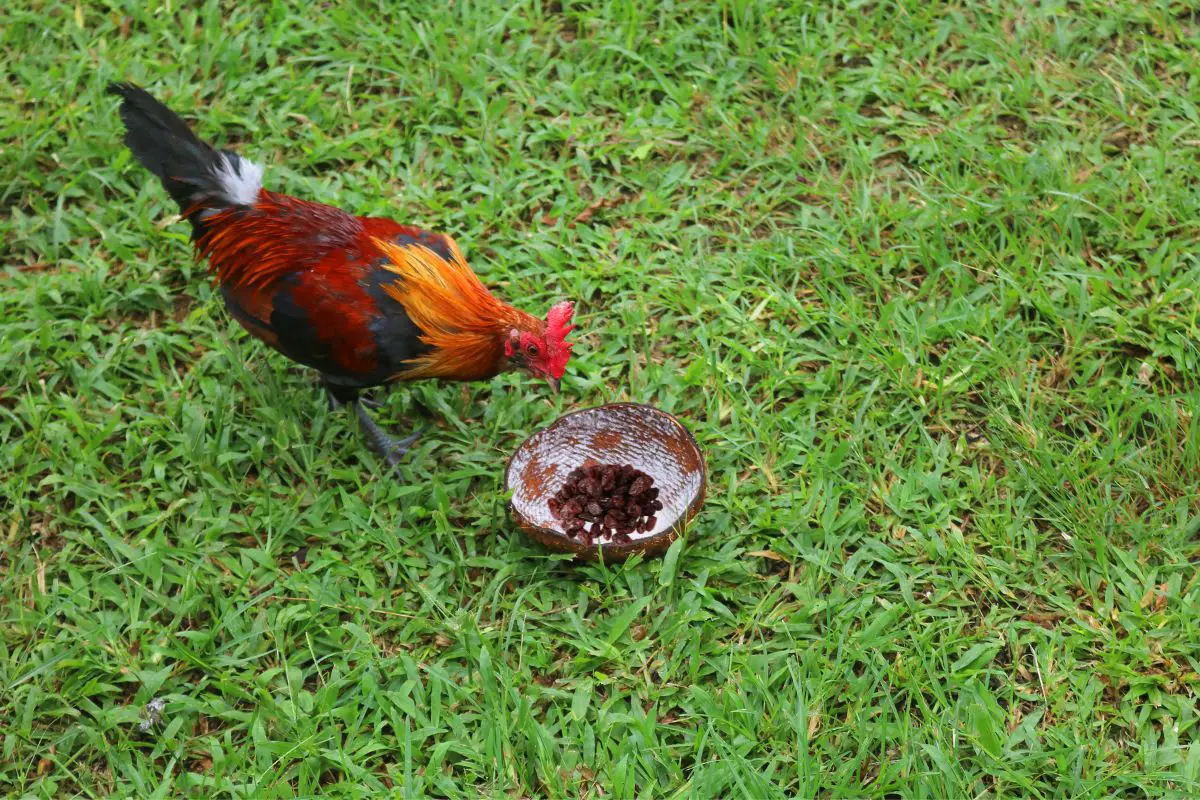Chickens can definitely eat raisins and they will enjoy this treat. Unlike most other fruits and vegetables, there is no preparation required, although you should only feed these in moderation.
It’s no secret that chickens love to eat fruit – just about any kind of fruit that you toss in their feeding area will be gobbled up immediately. But what about dried fruit like cranberries or raisins?
This article will discuss the impact of feeding raisins to your flock, and cover the health benefits and potential pitfalls that raisins have on your chicken’s health, as well as how much raisins they can consume as part of a balanced diet.
Table of Contents
Raisins Are Safe For Chickens
Raisins are dried grapes, and can be safely fed to chickens in moderation. Dried fruits are often a favorite treat of chickens because not only do they taste good, they are easy to eat, and contain a high amount of carbohydrates which most backyard chickens love.
A common myth exists that you should never feed grapes or raisins to animals because they are toxic. This may be true for dogs (who can get kidney failure from ingesting too much) but it is certainly not the case for chickens.
Some chicken keepers will soak raisins before feeding this chicken treat, but this isn’t necessary and may be problematic because chickens have trouble digesting too many wet foods.
What can be dangerous is feeding moldy raisins to your chickens as mold is toxic and can easily kill your birds. Avoid feeding any food that appears to have mold growth, or is old and expired as it may be harmful.
What are the Health Benefits of Raisins?
Raisins do offer a great deal of nutritional value and can be offered as an occasional treat alongside chicken feed as a supplement to your chicken’s diet.
Raisins contain the following vitamins and nutrients:
- Vitamin C
- Vitamin A
- Vitamin K
- Folate
- Magnesium
- Potassium
- Antioxidants
- Calcium
- Selenium
- Iron
Just a handful of raisins once per week will offer your flock the following health benefits:
- Improves bone health and durability
- Helps control blood sugar
- Fights free-radicals
- Offers healthy weight-gain
- Helps with constipation
- Improves anemia
Raisins can be a nutritious and beneficial snack for your chicken’s health, as long as you employ portion control.
Can Chickens Eat Any Kind of Raisins?
Feeding chickens raisins of any variety is safe. Golden raisins are just as nutritious and delicious as regular raisins, and may even taste better as they tend to be softer.

How Many Raisins Can You Feed Chickens?
There isn’t a set rule for how much raisins chicken owners can feed their flocks, but it’s often best to limit the number of sugary treats they eat.
A handful of raisins tossed into the feeding area once a week should be plenty, depending on how many birds you have.
Can Raisins Cause Chickens to Gain Weight?
The high sugar content of raisins can cause weight gain if overeating is allowed and can lead to health issues.
A chicken’s normal diet should only contain a small number of sugary treats.
If you desire healthy weight gain for your chickens, you can provide raisins as a part of what you are offering them, but you should never supplement your chicken’s feed with more than 10% of other foods.

